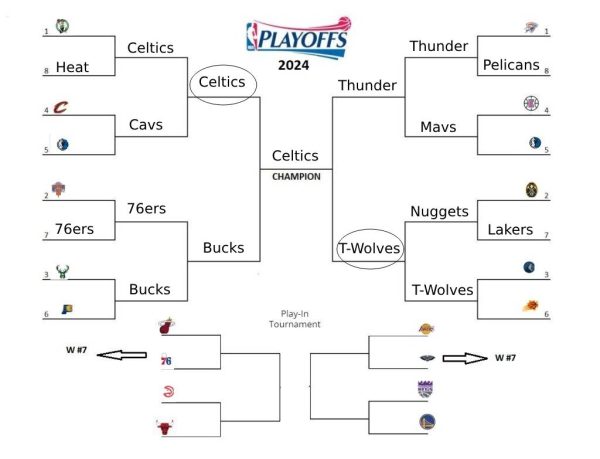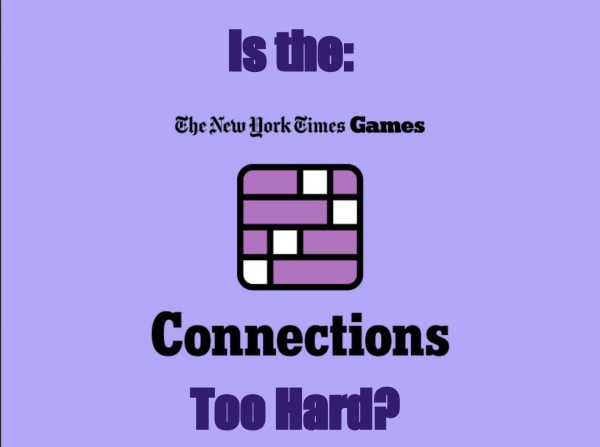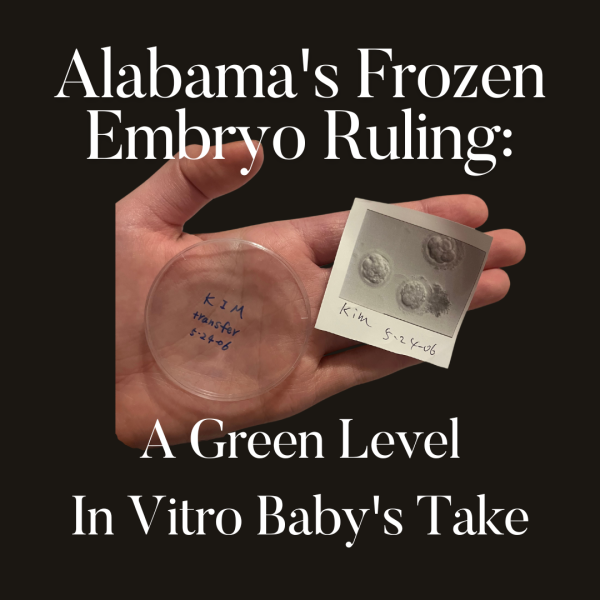Letter to the Editor: The US Looks Like a Fool
On June 1st, 2017, Donald Trump withdrew the United States from the Paris Climate Agreement. The Paris Climate Agreement (PCA) was an international agreement, hosting 146 countries dedicated to preventing climate change through the reduction of carbon emissions. As said on their website, “The Paris Agreement builds upon the Convention and for the first time brings all nations into a common cause to undertake ambitious efforts to combat climate change and adapt to its effects” Their goal is to keep global temperature rise below 2 degrees Celsius for this century. Each country is to submit reports on their emissions and efforts to prevent further emissions.
One of Trump’s foremost campaign promises was to “Make America Great Again,” in other terms “putting America first,” and he described the PCA as “very unfair at the highest level to the United States.” Trump (and others) claim that the agreement is simply an excuse to bog down the United States in their production. The basic summary of Trump’s reasoning is that if America decreases its emissions, it also decreases its production, which would allow for other countries to take lead, and Trump blames the failure of the coal industry on the Paris Climate Agreement, (since coal is a fossil fuel). This would not be the case. The coal industry has been experiencing drops in employment since the 1950s: where they once had over 350,000 workers, they now have around 50,000. While Trump says that it harms the American economy, if the entire coal industry suddenly disappeared, it would be a small nick in the American economy, a gap to quickly be filled by other forms of energy. The solar power industry already had more employees than coal: at around 374,000 people, the solar power industry has more than 5 times the amount of employees as the coal industry does. President Trump is thinking in the short term when he claims to leave the PCA. He substitutes U.S jobs and economy for the betterment of the world.
The PCA said that developed countries (the United States and others) should help developing countries (India, China, etc) get used to using renewable energy resources. For Trump, this means that the United States had to give tens of billions of dollars to other countries, a concept that does not sit well with Trump. The problem with his logic here is that the PCA does not formally bind any country to do anything, but encourages them to make the world a better place.
By far the most convincing piece of logic that Trump has on his side is the fact that he does not believe in climate change. It’s easiest to not follow something when you don’t acknowledge its existence. As shown in both one of his most well-known tweets “The concept of global warming was created by and for the Chinese” and in well over 100 tweets he has expressed his disbelief in global warming. While his commitment to his campaign promises is admirable, the decision the leave the PCA was evidently not the best choice to make, as it has made the U.S look bad in the world’s eyes. The U.S is the only global superpower to “leave” the PCA. While Trump did try to renegotiate the terms of the PCA to more suit the U.S, leaders in the PCA (France, Germany, Italy) refused to renegotiate. To further this ostracization, even many U.S companies and governors don’t agree with his decision, still pledging to follow the PCA. Oddly enough, Trump’s decision to leave the PCA has sparked many previously neutral states and parties to join the fight against climate change. Even now, the U.S is the second largest carbon emitter in the world, and to “leave” the PCA is to, in the words of former President Obama,”[join] a small handful of nations that reject the future.”
In fact, what does Trump’s decision to pull out actually accomplish? The decision to pull the United States out could be considered isolationism. We have once again separated ourselves from the affairs of the world. In an event that the United States should be pushing the frontlines of America instead chooses to sit back and do nothing. The strange thing is, we can’t actually pull out until November 4th, 2020. Coincidentally, this is the date directly after the 2020 election, which is held November 3rd. We are obligated to stay in the agreement until that time, and when Trump said that the United States was leaving the PCA it had no real weight. Nothing could actually happen. The situation is worsened by the fact that many other countries, such as Russia, are doing the same amount of work was the United States, that is to say, none. The difference here is that Russia didn’t leave the PCA, but the United States did.
While we may never understand the mysterious workings of Trump’s brain, by intensely studying and observing the Cognitive Bias Codex (a cognitive bias is simply put a tendency for us to do something, something that relates to cognitive processes) we can reason why Trump made that decision. Biases such as the congruence bias, selective perception, blind spot bias, naive cynicism, continued influence effect, and backfire effect each played a role in shaping Trump’s decision.
Confirmation bias is the cognitive bias in which we search for information that matches what we already think is correct while ignoring information that doesn’t match our opinions. For example, if someone thought smoking was good, that person would ignore all the studies and tests done to show that smoking causes cancer, and only focus on the fact that it makes you feel good. This bias can be applied to Trump’s decision as he only took into consideration why the PCA was against him, decreased carbon emissions, different rules for other countries, and “having” to pay other countries. However, what he didn’t take into consideration was that all countries were expected to decrease carbon emissions, different countries were in different stages of development, and that the United States was supposed to be the “leader” of the PCA. The biggest thing that he didn’t take into consideration was that the PCA is meant to combat climate change but instead thought that the PCA was made as an excuse to target America.
Blind spot bias is a cognitive bias in which you think everyone is influenced by biases and you are the only person who isn’t. This bias confirms that we can’t prevent our own cognitive biases from happening, as we don’t think they apply to us. This basically means we can find problems with others more easily than we can find problems in ourselves. An example of this would be a person identifying that their friend is showing confirmation bias by neglecting the other side, while you don’t realize that you are self-handicapping yourself by not choosing a side. Self-handicapping is when you don’t do anything in fear that it may hurt your self-esteem. This applies to Trump’s situation as Trump believes others logic is flawed, while he doesn’t believe his own is.
Another cognitive bias is Continued influence effect. Continued influence effect is when an individual learns facts about something which are later proven wrong, but those wrong facts still keep influencing them. For example, being told that eating the black watermelon seeds will cause a watermelon to grow inside of you isn’t true, but it still has an effect that individuals will avoid eating the black watermelon seeds. While this fact is wrong, it still causes those people to avoid black watermelon seeds. This applies to Trump’s situation as he has been proven wrong many times, but it is still evident that those things influence him. For example, though he has been wrong many times about climate change, he still continues to think that climate change is fake.
Backfire effect is when a person is shown evidence that goes against their beliefs they end up holding their original position stronger. This makes sense since they go defensive when confronted about their beliefs. Then, they will find more reasons for why their belief is correct, and end up holding that original position stronger. An example of this would be Trump supporters. When confronted about how offensive Trump is, they will hold the original position stronger with the reason that he is honest, which explains why he could come across as offensive. In this context, when Trump is told climate change is indeed real, he comes back stronger in the stance that climate change is definitely fake. Backfire effect and continued influence effect go hand in hand as a fake fact will influence you, this leads you to a wrong opinion. When you are confronted with this opinion, you come to hold it closer by finding more reasons to justify it.
Two cognitive biases that go hand in hand are Naïve cynicism and Naïve realism. Naïve cynicism is when a person expects another to be more egotistical than is actually the case. If a person shares a point of view that isn’t similar to yours, you view them self-centered on the claim that their words and actions only show how self-centered they are. An example of Naïve cynicism would be if I said it is good to mow your lawn weekly, while someone disagrees and says that you don’t need to mow your lawn. I would then think that person is only concerned about their own financial gain and doesn’t care about how their unorderly lawn ruins the crisp uniform army of lawns stretched across the street. This applies to Trump as he does not believe in climate change. People who disagree with him assume that he is only concerned about his own financial gain, and not about the world around him. Naïve realism is very similar to blind spot bias, except for the fact that anyone who disagrees with you is irrational and biased. For example, let’s say that person A supports team A and person B supports team B. The claim of person A is that the referee is biased against team A, as team B has broken many rules. Person B now responds by saying its actually team A that is breaking the rules, and it’s only right for team B to break the rules now that team A has already done it. Person A now thinks that person B is irrational and biased, because person A’s opinion is an objective view, so if someone disagrees they must be crazy. This also applies to Trump again in the same context. Him not believing in climate change makes many others think that he is irrational and biased, he doesn’t have the full picture and is making irrational decisions.
Economic incentives would be an example of choice architecture that influenced Trump’s decision. The economic incentive of having a superior economy that can’t slow down and let other nations catch up. Trump believes that the lessening of the carbon emissions would provide ample opportunity for economies of other nations, such as China, to match or even surpass that of the United States. Another example is the tendency to think in the short-term as opposed to the long term. For example, you spend too much money in the short term, since it makes you happy, and can’t plan for the long term, a secure and happy retirement. This is shown in the situation as Trump leaves the PCA for the economic benefits of the short term, but fails to see how this would affect the world in the long term, and that global warming will continue to increase with America stepping out of the PCA. Further along the lines of this, while a short-term con may be paying developing countries to boost their renewable energy output, the long-term benefit will be another nation using renewable energy.
Finally, Trump will do the opposite of what others are doing. This is basically the opposite of conformity bias, in many cases Trump will do the opposite of what others have done. Other countries avoid North Korea? Trump doesn’t. Other countries believe in global warming? Trump doesn’t. Other countries stayed in the PCA? Trump didn’t. This seemingly arbitrary decision-making method does yield positive and negative results and certainly does create some worldwide drama.
My stance on this situation was that it is a bad idea to leave the PCA. Much of the reasoning behind Trump’s departure from the PCA revolves around the PCA placing manufacturing limitations, but not in other countries. This is since other countries, such as India and China, are still developing. Furthermore, the countries themselves set goals for themselves, the PCA was not forcing the U.S to do anything. Trump was trying to save an already dying coal industry, without considering that America’s departure from the PCA was a mistakeFollowing this, the claims that the PCA is causing a decline in the coal industry in America are wrong. The coal industry was already failing and remember that correlation doesn’t imply causation. The correlation between the United States in the PCA and the coal industry dying may have been at the same time, but the United States being in the PCA was not a cause of the decline of the coal industry. Other renewable energy industries, such as solar power, have already surpassed the coal industry. Due to further rules of the PCA, the United States still can’t leave until 11/4/2020, making the statement to leave the PCA ineffective. The reasoning to leave the PCA is unstable, and not only does it not accomplish what it was set on doing, but it also made the United States look like a fool.












